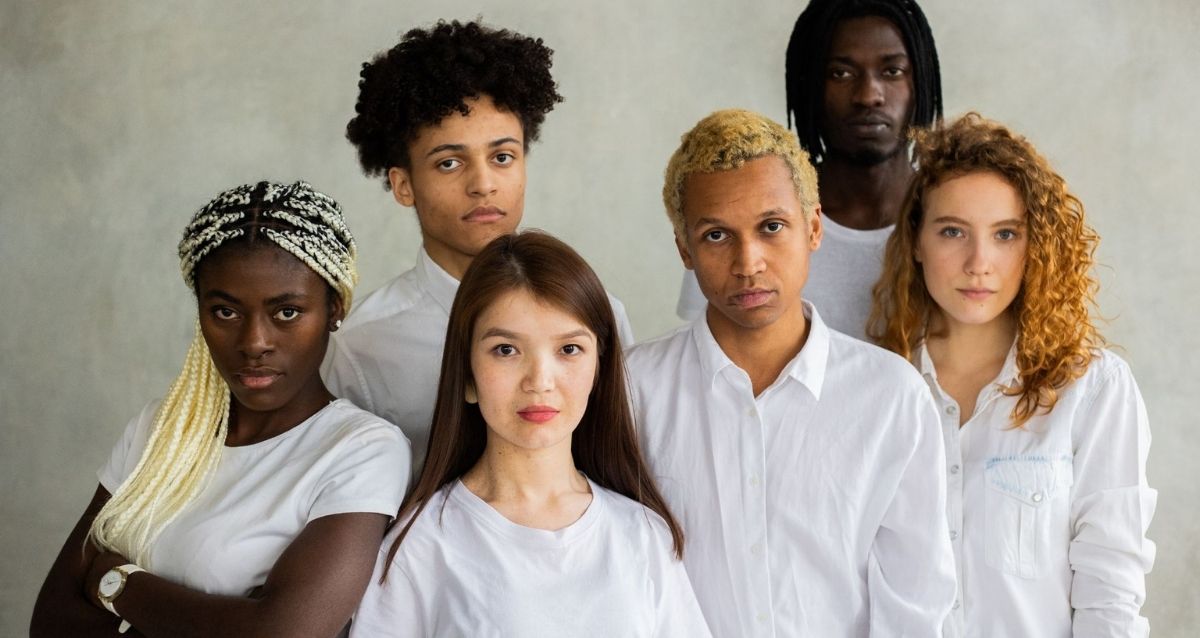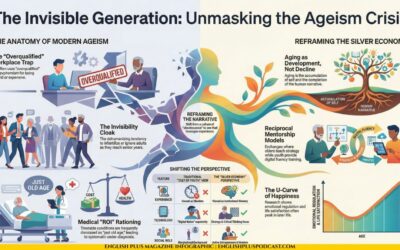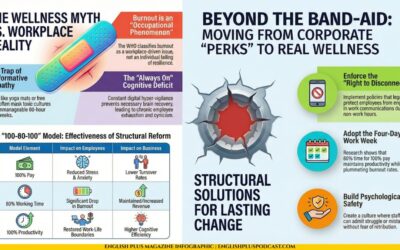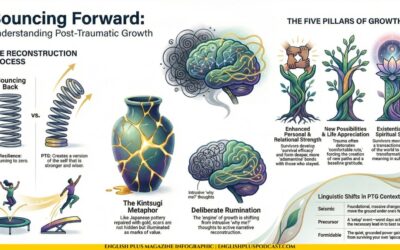- Introduction
- The Importance of Appearance: Why Image Matters
- Why Appearance Matters
- How to Use Appearance to Your Advantage
- The Bottom Line
- Plus Discussions
- Q — How do societal standards of beauty and appearance impact individuals who do not fit those standards, and what can be done to promote inclusivity and acceptance?
- Q — Can dressing well and paying attention to grooming alone change how a person is perceived by others, or are other factors such as body language and communication also important?
- Q — Are there situations where appearance should not matter, such as in the workplace where skills and abilities should be the focus, and how can individuals balance their appearance with their professional capabilities?
- Q — How can individuals strike a balance between dressing appropriately for different situations and expressing their personal style and values through their appearance?
- Q — How can individuals overcome insecurities related to their appearance and improve their confidence and self-esteem?
Introduction
Appearance matters in personal and professional settings. Learn how to use your appearance to your advantage by dressing appropriately, paying attention to grooming, investing in quality clothing, taking care of your body, and being true to yourself.
The Importance of Appearance: Why Image Matters
As humans, we often make snap judgments based on appearances. It’s not necessarily a good thing, but it’s a reality that we must acknowledge. From a first date to a job interview, how you present yourself can greatly impact how others perceive you. In this blog post, we’ll discuss why appearance matters and how you can use it to your advantage.
Why Appearance Matters
Appearance matters in both personal and professional settings. Here are a few reasons why:
First Impressions Are Everything
First impressions are crucial, and your appearance plays a big role in shaping them. When meeting someone for the first time, it takes only a few seconds to form an impression. This initial assessment can influence the rest of your interaction with the person.
Your Appearance Communicates Who You Are
Your appearance communicates a lot about who you are as a person. It can convey your personality, your interests, and your values. This is why it’s important to consider what you’re wearing and how you present yourself, as it can say a lot about you.
Appearance Can Affect Your Confidence
When you look good, you feel good. Taking care of your appearance can help boost your confidence and self-esteem, which can translate into better performance in various areas of your life.
Appearance Affects How You’re Perceived
Research has shown that people who are well-groomed and well-dressed are perceived as more competent, trustworthy, and likeable. In contrast, those who are poorly dressed or disheveled may be perceived as less capable or trustworthy.
How to Use Appearance to Your Advantage
Now that we’ve established why appearance matters, let’s discuss how you can use it to your advantage. Here are some tips to consider:
Dress Appropriately for the Occasion
When dressing for a particular occasion, it’s important to consider the dress code and the context. You wouldn’t wear a tuxedo to a casual lunch, nor would you wear ripped jeans to a job interview. Dressing appropriately shows that you understand the expectations and are respectful of the situation.
Pay Attention to Grooming
Grooming is just as important as clothing when it comes to appearance. Make sure your hair is neat and styled, your nails are trimmed, and your skin is healthy. These small details can make a big difference in how you’re perceived.
Invest in Quality Clothing
Investing in quality clothing can make a huge difference in your appearance. Quality clothing not only looks better, but it also lasts longer and feels more comfortable. You don’t have to break the bank, but investing in a few key pieces can make a big difference.
Take Care of Your Body
Your appearance isn’t just about what you wear – it’s also about your physical health. Eating a healthy diet, getting enough sleep, and exercising regularly can help you look and feel your best. Taking care of your body can also help boost your confidence, which can in turn enhance your appearance.
Be True to Yourself
While it’s important to dress appropriately for different situations, it’s also important to be true to yourself. Don’t try to be someone you’re not, as it can come across as insincere. Instead, dress in a way that reflects your personal style and values.
The Bottom Line
Appearance matters, whether we like it or not. It can influence how others perceive us and can affect our confidence and self-esteem. While it’s important to dress appropriately for different situations, it’s also important to be true to ourselves. By paying attention to our appearance and grooming, investing in quality clothing, and taking care of our bodies, we can use our appearance to our advantage. It’s not about conforming to society’s expectations, but rather, about presenting ourselves in the best possible light.
That being said, appearance is just one aspect of who we are. It’s important to remember that our inner qualities, such as our personality, skills, and values, are just as important, if not more so, than our outer appearance. A well-dressed person who lacks integrity or kindness will not be as respected or valued as someone who has those qualities.
Furthermore, it’s also important to recognize that appearance can be a sensitive topic for some people. Society’s standards of beauty can be unrealistic and exclusive, and it’s important to acknowledge that not everyone has the same privileges or resources when it comes to appearance. We should strive for inclusivity and acceptance, rather than judgment and discrimination. In conclusion, appearance matters in both personal and professional settings. It can influence how others perceive us, and can affect our confidence and self-esteem. However, it’s important to remember that appearance is just one aspect of who we are, and that our inner qualities are just as important, if not more so. By paying attention to our appearance and grooming, investing in quality clothing, and taking care of our bodies, we can use our appearance to our advantage. But ultimately, it’s about being true to ourselves and presenting ourselves in the best possible light, without sacrificing our authenticity or values.
Plus Discussions
Q — How do societal standards of beauty and appearance impact individuals who do not fit those standards, and what can be done to promote inclusivity and acceptance?
Societal standards of beauty and appearance can have a significant impact on individuals who do not fit those standards. This can lead to feelings of inadequacy, low self-esteem, and even discrimination. For example, those who do not fit the thin, able-bodied, and conventionally attractive standards often face social stigma, bias, and prejudice.
To promote inclusivity and acceptance, it’s important to challenge narrow beauty standards and embrace diversity. This can be done in several ways, including:
- Educating people about the harm of beauty standards: Raising awareness about the negative effects of narrow beauty standards can help promote acceptance and inclusivity. Education can also help people recognize and challenge their biases.
- Promoting diverse representations in media: The media can play a significant role in shaping societal beauty standards. By promoting diverse representations of beauty in media, we can challenge conventional beauty ideals and promote inclusivity.
- Creating safe spaces for people to express themselves: Creating safe spaces where individuals can freely express themselves without judgment or discrimination can help promote self-confidence and self-esteem.
- Encouraging people to focus on inner qualities: Emphasizing the importance of inner qualities, such as kindness, intelligence, and empathy, can help shift the focus away from physical appearance and promote a more inclusive society.
- Being mindful of language: Being mindful of the language we use and avoiding derogatory terms or language that reinforces negative stereotypes can help create a more accepting and inclusive environment.
Ultimately, promoting inclusivity and acceptance requires a collective effort from individuals, communities, and society as a whole. It’s important to recognize and celebrate diversity, challenge beauty standards, and promote self-acceptance and self-love.
Q — Can dressing well and paying attention to grooming alone change how a person is perceived by others, or are other factors such as body language and communication also important?
Dressing well and paying attention to grooming can certainly have an impact on how a person is perceived by others, but other factors such as body language and communication are also important.
While appearance can create a positive first impression, it’s the overall behavior and communication that creates a lasting impression. For example, a well-dressed and well-groomed person who comes across as arrogant or dismissive may not be perceived positively, whereas someone who is dressed appropriately but exudes confidence, kindness, and competence can be perceived positively.
Body language and communication also play a crucial role in how a person is perceived. Nonverbal cues such as eye contact, posture, and facial expressions can communicate confidence, warmth, and engagement, while poor body language can indicate discomfort or lack of interest. Effective communication, such as clear and articulate speech, active listening, and the ability to express oneself clearly, can also contribute positively to a person’s overall impression.
Therefore, while dressing well and paying attention to grooming can create a positive first impression, it’s important to be aware of and pay attention to other factors that can contribute to a positive perception, such as body language and communication.
Q — Are there situations where appearance should not matter, such as in the workplace where skills and abilities should be the focus, and how can individuals balance their appearance with their professional capabilities?
In an ideal world, appearance should not matter in any situation, and people should be judged solely based on their skills, abilities, and performance. However, in reality, appearance does matter to some extent in most settings, including the workplace.
While skills and abilities are the primary focus in the workplace, appearance can still play a role in how a person is perceived and treated. For example, a person’s appearance may impact their chances of being hired, promoted, or assigned certain tasks. In some industries, such as fashion or hospitality, appearance may be an important aspect of the job.
That being said, there are certain situations where appearance should not be the primary focus, such as during job interviews or performance evaluations. In these situations, the focus should be on the person’s skills, abilities, and performance, rather than their appearance.
To balance appearance with professional capabilities, individuals can consider the following:
- Dress appropriately: Dressing appropriately for the workplace can convey professionalism and respect for the job. However, it’s important to also consider the workplace culture and dress code, and dress in a way that is comfortable and appropriate for the job.
- Maintain good grooming: Good grooming, such as keeping hair and nails neat and clean, can communicate attention to detail and professionalism. However, it’s important to not spend too much time on grooming at the expense of job performance.
- Focus on job performance: Ultimately, job performance is the most important factor in any workplace. By focusing on developing skills, being productive, and delivering results, individuals can demonstrate their value to the organization and overcome any biases or prejudices based on appearance.
- Avoid discriminatory behavior: Discriminatory behavior based on appearance is not acceptable in any workplace. Employers should have clear policies that promote diversity and inclusion, and individuals should speak up if they witness or experience discriminatory behavior.
Overall, appearance should not be the sole focus in any workplace, and individuals should balance their appearance with their professional capabilities and focus on job performance.
Q — How can individuals strike a balance between dressing appropriately for different situations and expressing their personal style and values through their appearance?
Striking a balance between dressing appropriately for different situations and expressing personal style and values can be challenging, but it’s possible with some careful thought and planning. Here are some tips:
- Understand the dress code: Understanding the dress code of a particular event or situation is crucial in determining what’s appropriate to wear. For example, dressing in formal attire for a black-tie event or wearing business attire for a job interview is expected.
- Add personal touches: Incorporating personal touches, such as jewelry, scarves, or accessories, can add flair and personality to an outfit without detracting from the overall appropriateness of the attire.
- Experiment with colors and patterns: Experimenting with colors and patterns that complement personal style and values can be a great way to express individuality while still being appropriate for the situation.
- Stick with timeless pieces: Investing in timeless pieces, such as a well-tailored suit, classic dress, or quality leather shoes, can provide a solid foundation for a wardrobe that can be mixed and matched to suit different situations.
- Be aware of non-verbal communication: Consider how clothing choices, posture, and gestures can communicate values and personality traits. For example, bright colors may communicate confidence and energy, while conservative dress may communicate professionalism and reliability.
- Consider cultural norms: Different cultures may have different norms and expectations regarding attire. It’s important to be aware of these norms and dress accordingly, particularly when traveling or interacting with people from different cultures.
Overall, finding a balance between dressing appropriately and expressing personal style and values requires careful consideration of the situation, the dress code, and personal preferences. By incorporating personal touches, experimenting with colors and patterns, investing in timeless pieces, and being aware of non-verbal communication and cultural norms, individuals can present themselves in a way that is both appropriate and true to their personality and values.
Q — How can individuals overcome insecurities related to their appearance and improve their confidence and self-esteem?
Overcoming insecurities related to appearance can be a challenging process, but there are several strategies that individuals can use to improve their confidence and self-esteem:
- Practice self-care: Engage in self-care activities that make you feel good, such as getting enough sleep, eating a healthy diet, and exercising regularly. Taking care of your physical health can improve your overall sense of well-being and boost confidence.
- Focus on positive self-talk: Challenge negative self-talk and focus on positive affirmations. For example, instead of criticizing yourself for a physical feature you don’t like, focus on what you do like about yourself.
- Surround yourself with positive influences: Surround yourself with people who uplift and support you. Spending time with positive influences can help build confidence and self-esteem.
- Learn to accept compliments: Accept compliments graciously and acknowledge your strengths. Recognizing and accepting positive feedback can help build confidence.
- Practice mindfulness: Mindfulness can help individuals develop a non-judgmental awareness of their thoughts and feelings. This can be particularly helpful in recognizing and challenging negative thought patterns related to appearance.
- Seek professional help: If insecurities related to appearance are impacting your mental health and well-being, seek professional help. A therapist or counselor can help you work through negative thought patterns and develop strategies to improve self-esteem.
Remember, everyone has insecurities about their appearance at some point. However, by practicing self-care, positive self-talk, surrounding yourself with positive influences, accepting compliments, practicing mindfulness, and seeking professional help when needed, you can overcome insecurities related to appearance and improve your confidence and self-esteem.










0 Comments